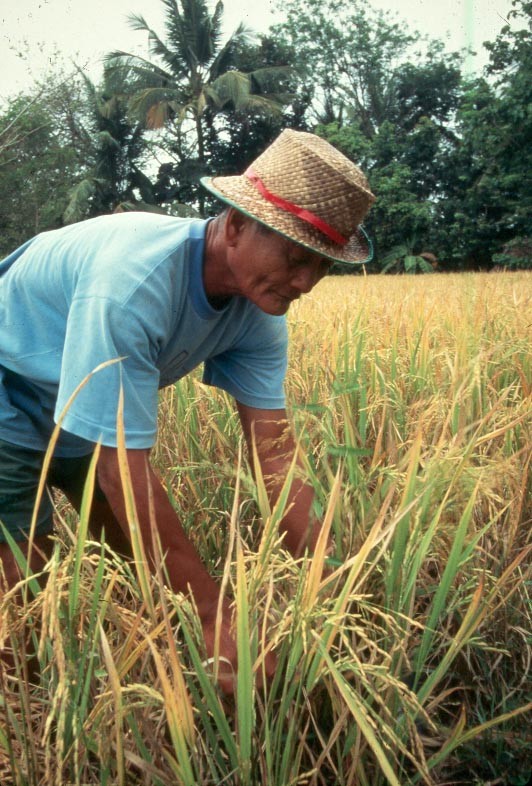Free trade: Threat to food safety, security
Alex Bianco, an intern with the Maryknoll Office for Global Concerns’ Faith Economy Ecology project, contributed to this article was published in the July-August 2014 NewsNotes.
Alex Bianco, an intern with the Maryknoll Office for Global Concerns’ Faith Economy Ecology project, contributed to this article was published in the July-August 2014 NewsNotes.
Hunger is a daily reality for billions around the world. Food security – or access to and the availability of nutritious food – for all people can only be achieved through good development policy that prioritizes local economies and sustainable food systems.
In addresses to the Food and Agriculture Organization, both Pope Benedict XVI in 2009 and Pope Francis in 2013 asked us to examine and ensure policies that eliminate food insecurity, including support for small farmers and cooperatives.
However current international trade policies actually are harming solutions to global hunger and food security. Trade agreements remove preferences for local economies, and instead increase income inequality, displacement of farmers, and prioritize profit over the common good. The U.S. is currently negotiating two trade agreements, one with the European Union (EU) and the other with nations of the Pacific Rim, representing roughly 80 percent of the global economy and 1.3 billion people around the world. The results of these agreements will affect food security as well as the safety of food globally.
The Trans-Atlantic Trade and Investment Partnership (TTIP) seeks to strengthen the political and economic bond between the U.S. and the EU. However, because tariffs between the two continents are already so low, TTIP is really about developing trade rules that the U.S. and EU can agree upon for conceptualizing and implementing future trade agreements with developing nations.
See TTIP: NAFTA takes a European holiday from July-August 2013 NewsNotes
In the context of food policy, TTIP will focus on weakening food safety standards in Europe. With the completion of this deal, big food and big agribusiness companies will seek to challenge food labeling laws, eliminate restrictions on genetically modified foods and undo years of progress in food and environmental standards in Europe.
An influx of foreign foods and goods from the EU being imported at a lower price will also threaten “buy local” movements occurring throughout the U.S. and the EU that give preferences to food and other items made locally to support local economies and minimize climate change.
The Obama administration is also negotiating the TransPacific Partnership (TPP), an agreement with 12 countries in the Pacific Rim. The pact includes Australia, Brunei Darussalam, Canada, Chile, Japan, Malaysia, Mexico, New Zealand, Peru, Singapore, and Vietnam. Due to the inclusion of Canada and Mexico it is often seen as a way to renegotiate the North American Free Trade Agreement (NAFTA.)
See TransPacific Partnerships concerns from May-June 2013 NewsNotes
Little information has been shared with the public about the TPP, an extremely un-transparent agreement. From what is known, the treaty seems to follow a model similar to NAFTA: The U.S. is allowed to continue to subsidize key crops while preventing other nations from using trade barriers such as tariffs or local purchasing preferences to protect their own foods. The result is that cheap agricultural products from the U.S. are introduced into foreign markets and destroy local farming economies in those countries.
These policies have real impacts. In June 2014, the U.S. threatened to hold back funding from the already approved Millennium Challenge Corporation (MCC) aid package over El Salvador’s Family Agriculture Plan (FAP). According to Inside U.S. Trade, the Office of the U.S. Trade Representative says that the plan is outside of the spirit of the Central America Free Trade Agreement, although it would not say how it actually was in violation of the agreement.
The Family Agricultural Plan ensures food security for small farming families by supporting the development of local seed production so that farmers can procure seeds at an affordable price while strengthening the local economy. International seeds companies can also provide seeds but so far their prices are double those from domestic seed production. Giving in to the MCC and providing conditioned aid is seen as harming Monsanto, which until the FAP provided 70 percent of the seeds to farmers. Fortunately, due to global solidarity pressure, the MCC backed down from conditioning the aid package in July 2014.
Between the TPP and TTIP, we are seeing a trend of profits before people, a model that is monopolizing agriculture policy both in the U.S. and abroad. While almost all of the countries in the TPP have free trade agreements with the U.S., they should pay very close attention before renegotiating those agreements under the TPP. Or perhaps negotiate the TPP to actually serve the needs of their own people rather than the interests of corporations.
See Trading in justice: The local impact of global economic decisions, Maryknoll’s statement on international trade policy

